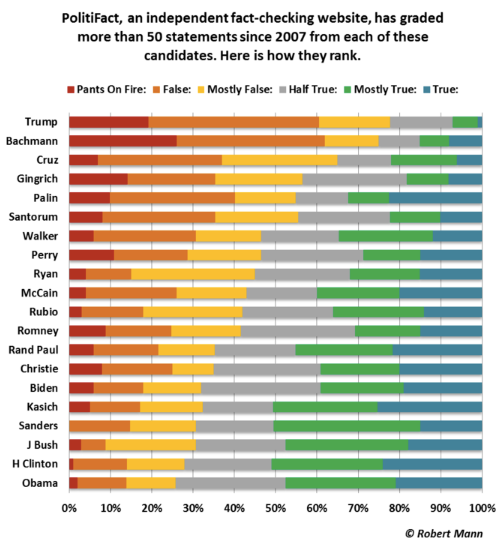 As the 2017 Minnesota legislative session heads into the home stretch and President Trump is creating a constitutional crisis, the news for Minnesota Republicans in the recent Star Tribune survey is not great.
As the 2017 Minnesota legislative session heads into the home stretch and President Trump is creating a constitutional crisis, the news for Minnesota Republicans in the recent Star Tribune survey is not great.
To recap, most Minnesotans are…
Digging Dayton. An overwhelming 62% of Minnesotans approve of the job being done by Minnesota Republicans’ primary antagonist, DFL Governor Mark Dayton. Less than half as many Minnesotans (29%) disapprove of the job Dayton is doing.
- Implication: He’s grumpy, boring, wonky, and unabashedly liberal, but Governor Eyeore remains quite popular with a strong majority Minnesotans. Despite Republicans’ best efforts to frame Dayton as being metro-centric and out-of-touch with Greater Minnesota, a majority in every region of the state approve of the job he is doing. As high stakes budget and policy negotiations between Dayton and legislators begin, Dayton is in a relatively strong position to push his progressive agenda.
In the Dumps About Trump. Only 40% approve of the Republicans’ national leader, President Donald Trump. This marks an all time historical low-point among Presidents, at a time that is supposed to be a President’s “honeymoon period.” For context, eight years ago, during dire economic times, the newly elected President Obama had a 62% approval rating.
- Implication: To state the obvious, “all time low” is not good. Republicans who remain steadfastly loyal to their party’s unpopular President could be more vulnerable in the upcoming 2018 mid-term elections. While the conventional wisdom would be for Republican incumbents to distance themselves from the toxic Trump, it’s difficult for them to do so, because Trump remains popular with the narrow band of Trump diehards. Republican incumbents need those voters on their side in order to survive 2018 primary and general elections. With Trump this unpopular, Republican incumbents are in a political bind.
Swooning for DFL Senators. In comparison to Trump’s 40% approval rating, 58% of Minnesotans approve of DFL Senator Al Franken, and 72% approve of Senator Amy Klobuchar.
- Implication: Franken and Klobachar remain popular as they relentlessly criticize Trump and his policies, which should embolden other DFLers to do the same. Also, Klobuchar looks difficult for Republicans to defeat in 2018, and both Franken and Klobuchar should be helpful surrogates for down ballot DFL candidates in 2018.
 Not Feeling The Mandate. Trump mandate? What mandate? Most Minnesotans don’t like Trump’s policies any better than they like him personally. About two-thirds (65%) oppose Trump’s signature campaign issue – building a Mexico wall. Only 29% support that idea. The survey also found that Minnesotans oppose Trump’s proposals to accelerate deportations, and his Muslim travel ban.
Not Feeling The Mandate. Trump mandate? What mandate? Most Minnesotans don’t like Trump’s policies any better than they like him personally. About two-thirds (65%) oppose Trump’s signature campaign issue – building a Mexico wall. Only 29% support that idea. The survey also found that Minnesotans oppose Trump’s proposals to accelerate deportations, and his Muslim travel ban.
The only ray of hope in the survey for President Trump was that 70% of Minnesotans support his drive-by Syrian missile strike, proving once again that Americans still love military actions, as long as victory can be declared within a matter of days.
- Implication. It turns out those “real Americans” at the Trump rallies who cheered wildly about the Mexico wall and Muslim ban are not very representative of most Minnesotans. Therefore, stressing those issues would seem to hurt Republicans more than help them, at least with moderate swing voters. However, the one thing that perhaps could make Trump more popular is a quick, easy military victory. Don’t think for a moment that a drive-by war has not crossed Trump’s compulsively self-promotional mind. In other words, it’s probably not a good time to plan a vacation to Grenada.
Nyet On Russiagate Coverup. Republicans steadfastly maintain that no one cares about the Russian controversy. But even prior to the disturbing Comey firing, a majority of Minnesotans (55%) indicated that they would like to see an independent investigation of the Trump campaign’s ties to the Russian interference in the U.S. presidential election, while 39% say there should be no such investigation.
- Implication: If Republicans continue to cover up and downplay the Russia controversy, it will not pass the smell test with a majority of Minnesotans.
All Aboard On Trains. By a strong twenty-point margin (54% support to 34% oppose), Minnesotans support building two extensions of light rail transit (LRT), from Minneapolis to the southwester suburbs and Minneapolis to the northern suburbs.
- Implication: Republicans should think twice about making LRT their poster child for wasteful spending. Despite Republican operatives and talk radio jocks aggressively bashing LRT over many years, most Minnesotans, including plenty of voters in swing suburban districts, support LRT expansion.
 Okay With O’Care. Then there is Obamacare. Republicans seem supremely confident that Obamacare is wildly unpopular. But a narrow plurality of Minnesotans actually is okay with it. Forty-nine percent of Minnesotans say Obamacare has been “mostly good,” while 44% say it has been “mostly bad.” This issue polled better for Republicans than most other issues, but this finding isn’t very encouraging for Republicans who are dead set on repealing Obamacare and replacing it with a Trumpcare plan that offers many fewer patient benefits.
Okay With O’Care. Then there is Obamacare. Republicans seem supremely confident that Obamacare is wildly unpopular. But a narrow plurality of Minnesotans actually is okay with it. Forty-nine percent of Minnesotans say Obamacare has been “mostly good,” while 44% say it has been “mostly bad.” This issue polled better for Republicans than most other issues, but this finding isn’t very encouraging for Republicans who are dead set on repealing Obamacare and replacing it with a Trumpcare plan that offers many fewer patient benefits.
- Implication: As Republicans prepare to replace Obamacare with something that the nonpartisan Congressional Budget Office (CBO) says will erases all of the Obamacare coverage gains, these numbers spotlight the political risk that Republicans are taking. Republicans are beginning to learn that the only thing many Americans hate more than Obamacare is lack of Obamacare.
Loving Local Control. By a whopping 34-point margin (60% oppose, 26% support), Minnesotans oppose the GOP-backed proposal to prevent Minnesota towns and cities from passing work-rule ordinances, such as minimum wage increases. In every region of Minnesota, a majority oppose limiting local control.
- Implication: This is another loser issue for Republicans. How in the world did the party that constantly preaches about the need for “local control” end up on this side of the issue?
Wrong Tax Cuts. Inexplicably, the Star Tribune apparently didn’t poll on what seems like the overarching question of this legislative session: What should legislators do with the state budget surplus? That is, should they spend it, cut taxes or save it for a rain day (i.e ask about “all,” “most,” “some,” or “none” for each category). Instead, the Star Tribune only asked how to cut taxes, as if tax cutting were the only thing being debated.
Even within that narrow fiscal category, the news wasn’t great for Republicans. Republicans propose tax cuts targeted to narrow constituencies — smokers, farmers, retirees, people with student loan debt, business owners and others. But most Minnesotans (45%) would rather just cut income taxes for all, perhaps because it’s simple and broad-based. Less than 20% of Minnesotans support the Republican-recommended constituency-by-constituency approach, while the rest support Jesse Ventura-style rebates (30%).
- Implication: Tax-cutting remains the Republicans’ bread-and-butter issue, and it should be a pretty easy sell. Still, Minnesota Republicans can’t even seem to do that right. They somehow managed to find the most unpopular way to cut taxes, which might somewhat limit the electoral benefits they stand to gain from the tax cuts.
Political tides ebb and flow, so today’s viewpoints could be very different at election time18 months from now. But as it currently stands in the dawn of the Trump era, Minnesota Republicans are not exactly winning so much they’re tired of winning.

